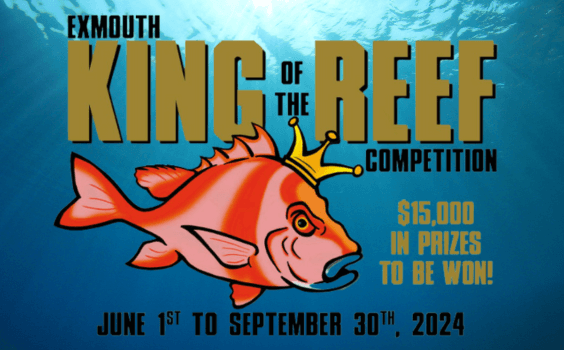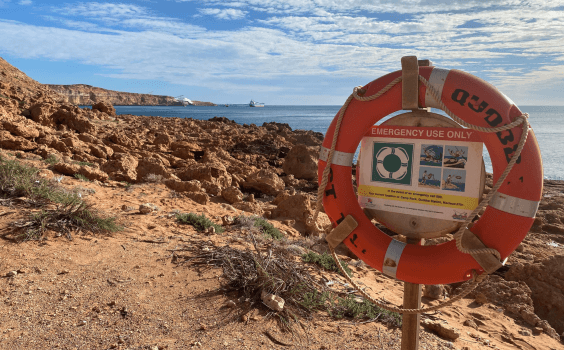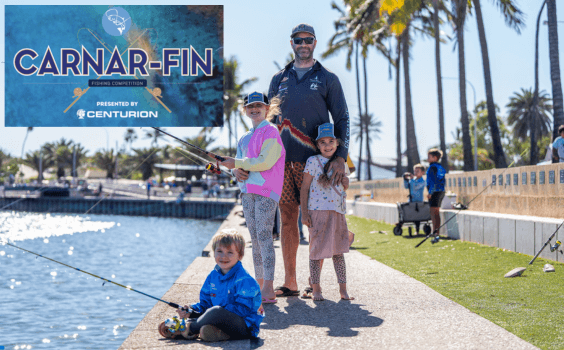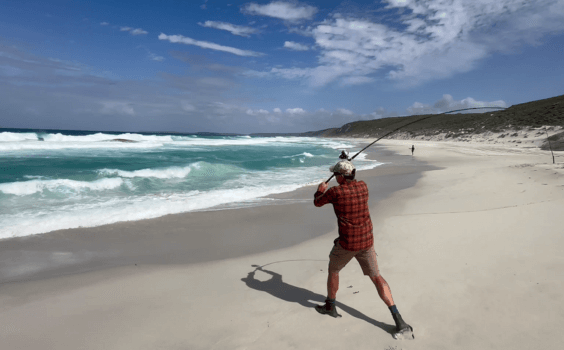Following the Government’s rushed decision in allocating zero tags to many charter operators in the West Coast Bioregion (WCB – from Kalbarri down to Augusta) from 1 July – dozens of family-run charter fishing businesses are now in freefall.
One of those who didn’t receive tags from the Government is Kristin McCarthy, the only female owner, operator and master within the WCB who has toiled for five years to establish her Seaestar Boat Charters business.
For now, Seaestar employs a full-time skipper, three full-time deckhands, two casual fish guides, one casual bus driver, one full-time engineer/mechanic, one admin assistant one part-time truck driver.
A mother of two young girls, Kristin usually works 16-hour days on her vessel Two Seas, specialising in diving, spearfishing and fishing. Running a successful charter fishing operation is hard yakka in anyone’s book, but all the more so for a working mum juggling childcare with running live-aboard charter trips to the Abrolhos.
“During my recent six days in the Abrolhos, I was up at 4am every morning and worked until 6-7pm every night while caring for my youngest daughter and customers on the boat,” said Kristin. “After returning to Geraldton, I then drive 400km back to Perth at 2am on Monday morning so I could drop my other daughter off to school and I’m covered head to toe in bruises from the boat – it’s physically and mentally exhausting.”
Despite the punishing hours, Kristin considers herself lucky to be in “one of the best jobs in the world.”
“This job is so special to me. I’ve spent my whole life working on the sea and it’s all I’ve done and all I know. I’m always meeting new people and made lifelong friends from clients that have come on the boat and enjoyed seeing many repeat customers grow as fishers,” said Kristin.
“Most importantly, you can work 365 days per year on the ocean and no one day is the same as the last. No matter how experienced you are, the ocean can teach you something new every day.”
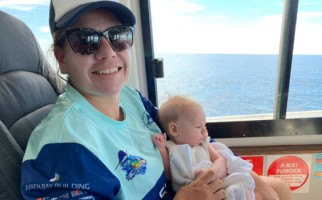
Kristin has given her all in making a go of her business over the last few years but reduced her working hours in 2020 to have a baby, in which time she invested in upgrading to a new vessel to offer a better charter experience for her customers.
However, having a baby and choosing a business model which results in smaller numbers of customers taking fewer fish taken has counted against her. This is because DPIRD’s method for allocating west coast demersal tags across operators (or not in Kristin’s case) was based on catch figures over the last five years – with the more west coast demersal fish caught, the more tags allocated.
“The decision process was flawed, “ said Kristin. “The Government didn’t take into account the effort in terms of days that were fished, it just looked at the fish that were landed rather than consider businesses that had created sustainable fishing models. Boats who cater for families and run catch and release trips were overlooked by boats who take out 20 people. It’s ridiculous.
“You would think that in trying to achieve fish stock recovery those that offer different experiences and sustainable fishing models would be of the up most importance in receiving their allowance.”
Regional jobs and businesses on the line
Extinguishing the opportunity and attraction of catching these iconic fish off the WA coast for many charter operators will severely slash the $110 million the charter industry pours into our economy each year – along with risking the jobs of the 831 people the sector employs.
“There will be huge flow-on effects from this ban across numerous sectors. There are loads of families and sectors attached to every fish caught that are about to be damaged,” said Kristin.
“Our clients come in from all around WA, Australia and the world and they all want to catch a WA dhufish or fight a baldchin groper on a hand line in the Abrolhos. We now can’t offer that experience or compete with the boats that still can.
“I have eight staff from regional towns and the Perth metro that all have mortgages and bills to pay. They all want answers about the long-term position they have in my business.”
The decision will also result in less fishing opportunities for the 72,000 people who go charter fishing in Western Australia and all the social and wellbeing benefits they derive from it, as well as the tourism flow-through they bring to WA coastal towns.
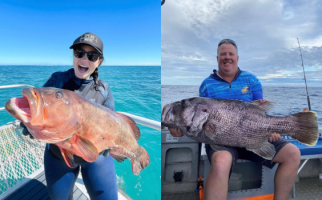
Government must delay to keep charter businesses afloat
“Kristin’s story shows how ill-conceived this tag scheme is,” said Recfishwest CEO Dr Andrew Rowland.
“The issue here is not about sustainability, but how the Government has chosen to share the available fish between sectors. Cutting the charter sector catch by 73 per cent, with dozens of operations being allocated no west coast demersal fish whatsoever was always going to result in many of these businesses going under.”
Recfishwest is calling on the Government to hold off on the tag distribution decision until the outcome of its recently opened voluntary commercial buy back scheme valued at $2.5 million
“The buy-back scheme could make more fish available to be allocated to both the charter and recreational sectors later this year,” said Andrew, “So why the rush to get the tag allocation through? A six-month delay won’t impact on stock sustainability, and it may just save dozens of family businesses from shutting down. Once these businesses are closed there will be no coming back for them.”



